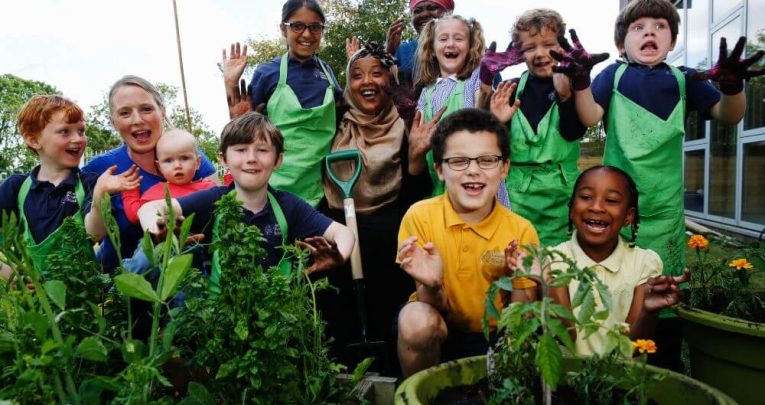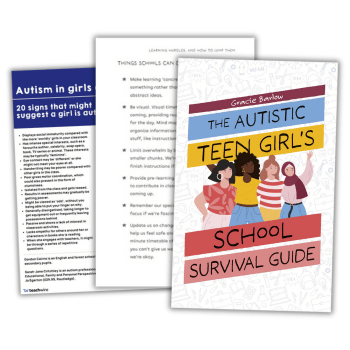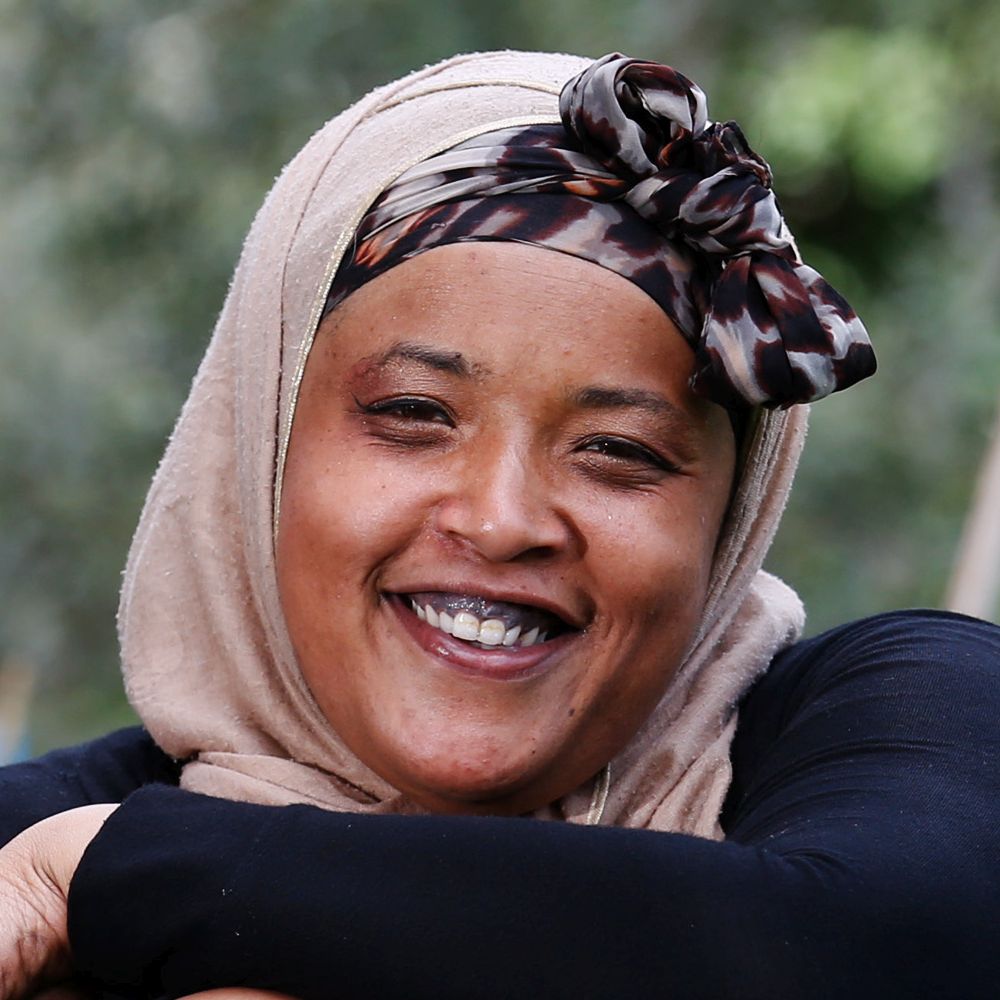Garden club – Our after school gardening club bloomed during lockdown

Our parent-led school gardening project has brought our community closer…

Ashmount Primary is in Crouch End, Islington. It’s located alongside a beautiful strip of urban woodland and is also close to a built-up area of estates and busy roads.
Some pupils have gardening space at home but a lot live in flats without access to their own outside space.
My own very inquisitive children wanted to learn about where their food came from and this sparked my interest in giving grow-your-own a try.
We started with windowsill herbs and lettuce inside our little London flat but with space limited, we contacted our local council to find out if we could put the disused community gardening space within our block to good use.
Making the most of donated and skipped materials, we upcycled an old wardrobe into raised beds and grew crops including strawberries, tomatoes and the best sweetcorn I’ve ever tasted, developing our gardening skills as we went. This was a huge success.
Almost all the neighbours got involved and the transformed plot became a space for everyone to enjoy.
Open to all
Inspired by this initial project, Reece, my eldest son, decided that his school would really benefit from a gardening club. He organised a meeting with Ashmount’s headteacher, taking along some of the fruit and vegetables we’d grown together. He readily agreed and we discussed the practicalities. In October 2018, the gardening club was born. I joined forces with two other enthusiastic parent volunteers and two teaching staff to create an after-school gardening club open to all. This included parents and carers.
We started small, using a few disused planters and approaching local businesses and farms further afield for support to get things up and running. One farm in Norfolk provided 50 rhubarb crowns and we got unusual varieties of seeds from the Heritage Seed Library, as well as saving seeds from supermarket tomatoes.
Quick-growing crops such as peas, beans and herbs that could be harvested before the summer holidays also worked well.
To map out and structure each session, we got ideas from the RHS Campaign for School Gardening website which has advice on seasonal tasks and activities for each month. Before long, over 50 families were on board and passion for the project bloomed.
I saw so many benefits – for both the children and the adults – from improved wellbeing to new friendships.
Trending
I’ll never forget one wonderful boy, Nathan, who has SEN. To begin with he was very shy and wouldn’t speak to many people, but at gardening club he came alive and was in his element among the worms, mud and seeds.
Nathan’s mother sent us a lovely message about how he was really enjoying the sessions and wanted to try lots of different fruit and vegetables at home because he knew exactly where they’d come from.
Going virtual
The pandemic stopped us gardening together in person but our community went virtual. During the first lockdown, we set up a WhatsApp group and exchanged ideas such as growing cress in toilet rolls, watching garlic cloves regrow and making homemade fat balls for the birds.
There was still so much children could achieve at home, even if they had no outdoor space.
Gardening over lockdown was so important for children’s mental health and also kept the adults well-balanced and hopeful. We’ve even been joined by more families, keen to find out what gardening they can do at home or what to spot when exercising in the park as the seasons change.
We have big plans for when restrictions ease. We want to ‘rewild’ around the school’s perimeter fence with wildflowers, dig a wildlife pond so children can pond dip for minibeasts, and hopefully hatch chickens. We’ll also continue to grow lots of varieties of fruit, flowers, vegetables and herbs.
Parents love to be involved in school life and communities can be strengthened through the power of plants. It might seem like a daunting task but gardening truly helps build confidence, teaches patience and encourages everyone to think about the world around them.
As my son always says, when you have a “mum on a mission”, you really can achieve a lot.
Michelle Jones is a parent volunteer at Ashmount Primary in London, and winner of the Royal Horticultural Society’s School Gardening Champion of the Year award. Sign up for free resources and advice from the RHS Campaign for School Gardening at schoolgardening.rhs.org.uk. Follow the RHS Campaign for School Gardening on Twitter at @rhsschools.











